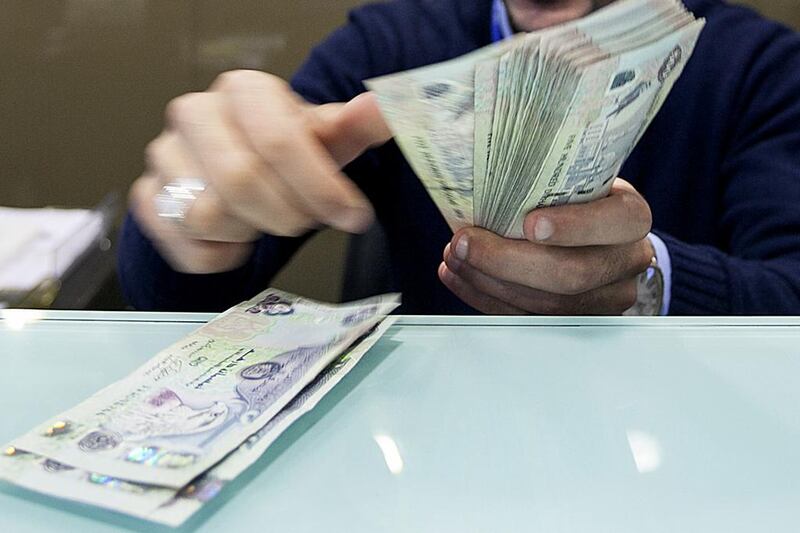The UAE is set to undershoot its budget deficit projections this year, on the back of higher-than-forecast revenues and spending cuts.
The country ran a fiscal deficit of Dh21 billion in the first half of the year – meaning that it is on course to undershoot Government projections of a Dh124 billion deficit through this year.
At the current rate of spending, the UAE will run a full-year deficit of about 2.1 per cent of GDP this year.
That is towards the low end of analyst estimates. The IMF forecast last month that the UAE would run a deficit of 5.5 per cent of GDP this year, while Emirates NBD expects the deficit to be between 2 and 3 per cent.
The collapse of oil prices from about $110 per barrel in the middle of 2014 to less than $50 per barrel now has hit the UAE’s public finances. Abu Dhabi relies on oil for 80 per cent of its revenues, according to Moody’s.
The improvement in the country’s public finances “is due mainly to the increase in total revenues”, the Central Bank said in its third-quarter economic report, published yesterday.
Revenues, which were previously expected to come in at Dh94.2 billion in the first half of the year, instead hit Dh105.5bn, beating government forecasts by 11 per cent.
Public spending cuts have also contributed to the smaller deficit. Overall, public spending is down by 12 per cent compared with a year ago.
Spending on subsidies has fallen by more than 90 per cent compared with last year, after government reforms to fuel prices, electricity and water.
In the first half of the year, the Government spent Dh400 million on subsidies – compared with Dh6.1bn in the first six month of last year. But subsidies accounted for just 3 per cent of total Government spending.
The country continued to increase spending on public sector compensation, which rose 37 per cent in the first half of the year, compared with the same period last year.
The biggest cut came in “other expenses” – a budget line item that refers to spending by the government of Abu Dhabi on federal projects, which includes spending on the Armed Forces. Abu Dhabi’s spending on Federal projects fell by 19 per cent against the previous year.
Standard & Poor’s uses this figure as a proxy for federal capital expenditure – which suggests a possible slowdown in investments as the oil price bites. Capital spending accounts for less than 40 per cent of total spending, according to the ratings agency’s estimates.
While the IMF has endorsed the UAE’s spending cuts and subsidy reforms, it has warned that the cuts would shave 1 per cent off the country’s economic growth each year between now and 2022. Cuts to investment projects have the biggest effect on economic growth.
Masood Ahmed, Middle East director at the IMF, wrote in The National in October: "Cutting public spending is not easy for any government, but it will be especially challenging for many Mena oil exporters, where oil revenues have both fuelled economic growth and provided the basis for extensive public sector employment, generous social transfers and very low energy prices."
business@thenational.ae
Follow The National's Business section on Twitter





